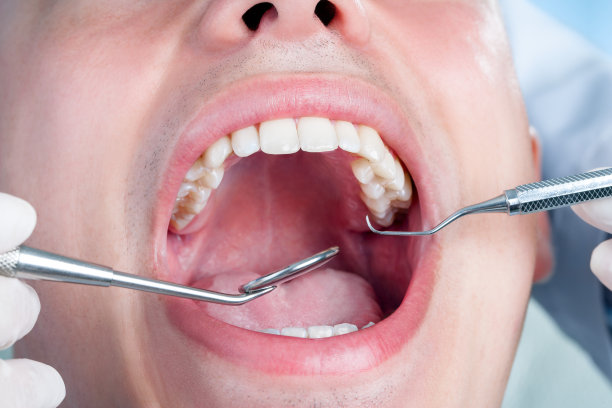Summary: Dental fillings are a common procedure used to restore the function and integrity of a tooth affected by decay or trauma. However, proper precautions must be taken both before and after the procedure to ensure the best outcome for oral health and to prevent complications. This article outlines essential tips, including pre-appointment preparations, communication with the dentist, aftercare practices, and signs to monitor following the filling. By following these guidelines, patients can enhance their recovery and maintain optimal dental health.
1. Prepare Clinically Before the Appointment

Before undergoing a dental filling procedure, its essential to ensure that you are adequately prepared. Begin by scheduling a thorough dental examination to assess the affected tooth and discuss any concerns you may have. A detailed examination helps the dentist determine the appropriate type of filling material needed and whether any additional treatments are required.
Additionally, gather information about your medical history. Inform your dentist about any allergies, existing health conditions, or medications you are currently taking. This information is crucial as it allows the dentist to tailor the treatment plan and avoid potential complications during the procedure.
Lastly, consider discussing sedation options if you experience anxiety related to dental procedures. Knowing what to expect can help ease your nerves and make for a smoother experience during the filling appointment.
2. Communicate Effectively With Your Dentist
Effective communication with your dentist is vital for ensuring a successful filling. Be honest about the symptoms you are experiencing and any previous dental work on the affected tooth. This transparency helps the dentist understand the severity of the situation and choose the best approach for treatment.
Dont hesitate to ask questions regarding the type of filling material your dentist recommends. There are various options available, including amalgam, composite, and resin. Understanding the differences can help you make an informed decision that suits your preferences and needs.
Additionally, clarify the procedure during your consultation. Knowing what will happen step by step can empower you and reduce anxiety. A dentist who encourages open dialogue will contribute significantly to making the experience more comfortable.
3. Follow Aftercare Guidelines Properly
After a dental filling, following the aftercare guidelines provided by your dentist is crucial for optimal healing. Initially, avoid eating or drinking anything for at least an hour after the procedure to allow the filling to set properly. Consuming food or beverages too soon can damage the filling and may result in discomfort.
For the first few days post-treatment, its advisable to stick to soft foods and avoid sticky or hard items that could put undue pressure on the freshly filled tooth. This helps ensure that the filling stays intact and reduces the risk of complications.
Additionally, maintain proper oral hygiene by brushing and flossing gently around the treated area. While its essential to keep the mouth clean, be cautious not to irritate the filling so that it stays in place optimally.
4. Monitor for Signs of Complications
It’s important to monitor your mouth for any signs of complications after getting a dental filling. If you experience persistent pain or discomfort that doesnt subside after a few days, reaching out to your dentist is crucial. Pain can indicate that the filling may not have been applied correctly or that there is an underlying issue with the tooth.
Additionally, keep an eye out for signs of swelling or infection, such as fever or discharge around the filling site. These symptoms warrant immediate dental attention, as they could lead to more severe complications if left untreated.
Finally, schedule routine dental check-ups after the filling. Regular appointments allow your dentist to monitor the condition of the filling and overall oral health, addressing any potential issues before they escalate.
Summary:
Proper precautions before and after getting a dental filling are crucial for ensuring an optimal experience, safeguarding oral health, and preventing complications. Engaging in thorough preparations, maintaining effective communication, following aftercare guidelines, and monitoring for complications can all enhance the benefits of the procedure. Taking these steps will contribute to a healthier smile for years to come.
This article is compiled by Vickong Dental and the content is for reference only.
Vickong Dental
Vickong Dental is a large medical group established in Hong Kong in 2008 by professors from well-known medical universities in Guangdong and Hong Kong, as well as medical doctors from key national '985' universities (including Master's supervisors and senior professors). The chain of branches brings together expert dentists with PhDs and Master's degrees from Hong Kong and Mainland China, committed to providing high-quality dental treatment.
"Vickong Dental Practices the University Motto of 'Healing and Serving Society,' with a Stable Operation for Sixteen Years. It Has Been honored with Hong Kong Enterprise Leaders's Choice,' and is a Global Trusted Implant Center for the Nobel Implant System. Recommended by Hong Kong Metro Broadcast and Guangdong Television, it Serves Customers from Over Thirty Countries and Regions, Gaining the Trust and Favor of Citizens from the Guangdong-Hong Kong-Macau Greater Bay Area and Surrounding Cities.

Thousands of customers' unanimous praise
The most recognized and highly recommended dental service by customers in the Guangdong-Hong Kong-Macau Greater Bay Area
We Ensure You Receive Detailed Care and Attention Here
Hong Kong standards, Shenzhen prices, Your Trusted English-speaking dentists

Vickong Dental Medical-Grade Instrument Disinfection Process
Vickong Dental Medical-Grade Instrument Disinfection Process

Vickong Dental Chain: A Warm and Comfortable Environment for Treatment






Appointment Hours

Q&A
Why choose Vickong Dental?
Vickong Dental practices the university motto 「Medicine to Benefit Society」, with each branch bringing together highly qualified dentists with doctoral and master’s degrees from Hong Kong and the Mainland, and has maintained seventeen years of steady operation。Recipient of 「2024 Hong Kong Enterprise Leaders Brand」, 「2025 Hong Kong Enterprise Leaders Brand」, a Nobel Biocare Global Trusted Implant Center, and a brand recommended by Metro Radio Hong Kong and Guangdong TV。
To date, we have served customers from more than thirty countries and regions,earning exceptionally high word-of-mouth recognition and trusted recommendations from residents across the Guangdong-Hong Kong-Macao Greater Bay Area and surrounding cities
We have eight major branches in Zhuhai、Shenzhen,and a consultation and service assurance center in Hong Kong,so you can book a free consultation at any time for any questions,which is very reassuring.
If I do not accept the quotation after the CT scan, will I be charged??
No! As long as the actual treatment has not started, you will not be charged any fees.
Will there be any additional charges during the treatment process?
No, there won’t be any additional charges. Before treatment begins, we will clearly explain the treatment plan and its corresponding fees. Only after the patient agrees and signs the consent form will we proceed with the dental service.
Can I pay in Hong Kong dollars?
Yes. Vickong Dental accepts payment in Hong Kong dollars. The amount will be converted based on the exchange rate of the day, and the applicable rate will be clearly communicated to you in advance.
Can I reschedule my appointment at any time?
Yes. Please contact us via **WeChat** or **WhatsApp** as early as possible, providing your original appointment time and details, along with your preferred new date and time slot for rescheduling.













